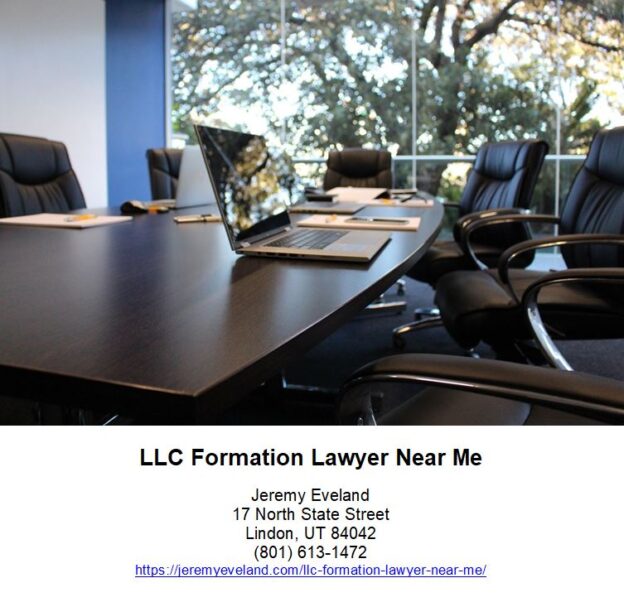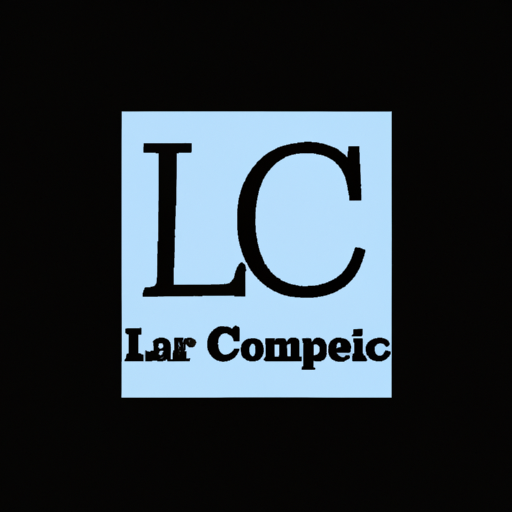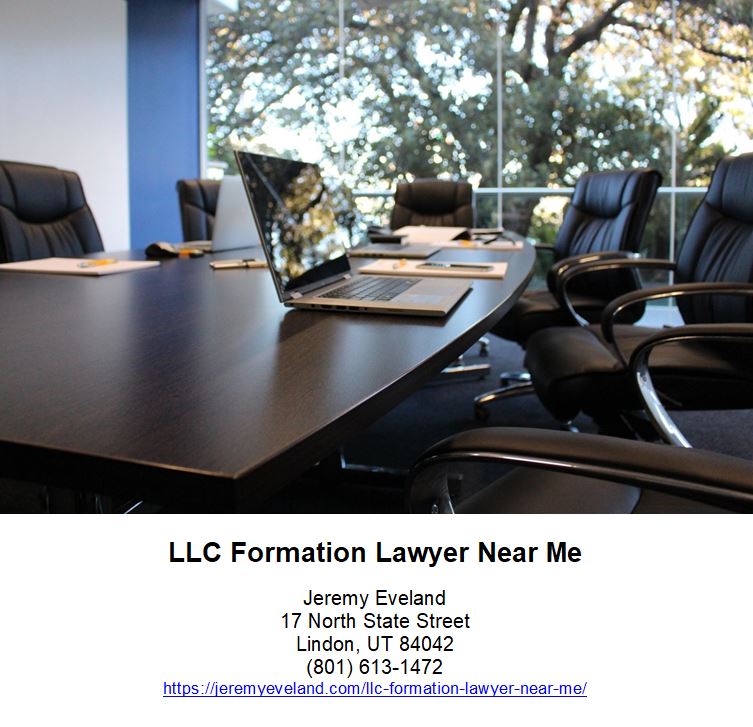-
Attorney at Law
- Introduction
- Analyzing the Tax Implications of Investing in Preferred Stock
- How to Choose the Right Preferred Stock for Your Portfolio
- Understanding the Risks of Investing in Preferred Stock
- Exploring the Benefits of Investing in Preferred Stock
- What is Preferred Stock and How Does it Differ from Common Stock?
- Creating Preferred Stock In Your Business
- Why You Should Hire a Preferred Stock Attorney
- Q&A
“Grow Your Portfolio with Preferred Stock – Invest in the Future!”
Introduction
Preferred stock is a type of equity security that has properties of both equity and debt. It is a hybrid security that has features of both common stock and bonds. Preferred stockholders have priority over common stockholders in the event of a liquidation, and they also receive a fixed dividend that is paid before common stock dividends. Preferred stock also has the potential to appreciate in value, making it an attractive investment for those looking for a balance between risk and reward.
Analyzing the Tax Implications of Investing in Preferred Stock
Investing in preferred stock can be a great way to diversify a portfolio and generate income. However, it is important to understand the tax implications of investing in preferred stock before making any decisions. This article will provide an overview of the tax implications of investing in preferred stock.
First, it is important to understand that preferred stock is a type of security that pays a fixed dividend. This dividend is usually paid out quarterly and is taxed as ordinary income. This means that the dividend income is subject to the same tax rate as other forms of income, such as wages or interest income.
Second, when it comes to capital gains, preferred stock is treated differently than common stock. When a preferred stock is sold for a profit, the gain is taxed as a long-term capital gain. This means that the gain is taxed at a lower rate than ordinary income. However, if the preferred stock is held for less than one year, the gain is taxed as a short-term capital gain and is subject to the same tax rate as ordinary income.
Finally, it is important to note that the tax implications of investing in preferred stock can vary depending on the type of preferred stock. For example, some types of preferred stock may be eligible for special tax treatment, such as the qualified dividend income tax rate. It is important to consult with a tax professional to determine the specific tax implications of investing in preferred stock.
In conclusion, investing in preferred stock can be a great way to diversify a portfolio and generate income. However, it is important to understand the tax implications of investing in preferred stock before making any decisions. This article has provided an overview of the tax implications of investing in preferred stock.
How to Choose the Right Preferred Stock for Your Portfolio
Preferred stocks are a type of investment that can provide investors with a steady stream of income and potential capital appreciation. However, it is important to understand the different types of preferred stocks and the risks associated with them before investing. This article will provide an overview of preferred stocks and offer tips on how to choose the right preferred stock for your portfolio.
First, it is important to understand the different types of preferred stocks. There are two main types of preferred stocks: cumulative and non-cumulative. Cumulative preferred stocks are those that require the issuer to pay any missed dividend payments before paying dividends to common stockholders. Non-cumulative preferred stocks do not have this requirement and the issuer is not obligated to make up any missed dividend payments.
When choosing a preferred stock, it is important to consider the issuer’s creditworthiness. Preferred stocks are typically issued by large, established companies with strong credit ratings. It is also important to consider the dividend rate of the preferred stock. Preferred stocks typically pay higher dividends than common stocks, but the rate can vary significantly from one issuer to another.
In addition, it is important to consider the liquidity of the preferred stock. Preferred stocks are typically less liquid than common stocks, so it is important to make sure that the preferred stock you are considering is actively traded on a major exchange.
Finally, it is important to consider the tax implications of investing in preferred stocks. Preferred stocks are typically taxed as ordinary income, so it is important to understand the tax implications before investing.
By understanding the different types of preferred stocks, the creditworthiness of the issuer, the dividend rate, the liquidity, and the tax implications, investors can make an informed decision when choosing the right preferred stock for their portfolio.
Understanding the Risks of Investing in Preferred Stock
Investing in preferred stock can be a great way to diversify a portfolio and generate income. However, it is important to understand the risks associated with this type of investment before making a decision.
First, preferred stock is not as liquid as common stock. This means that it can be difficult to sell preferred stock quickly and at a fair price. Additionally, the dividend payments associated with preferred stock are not guaranteed and can be reduced or eliminated at any time.
Second, preferred stock is subject to interest rate risk. When interest rates rise, the value of preferred stock tends to fall. This is because investors can get a higher return on their money by investing in other types of securities.
Third, preferred stock is not as safe as bonds. While bonds are backed by the issuer, preferred stock is not. This means that if the issuer goes bankrupt, preferred stockholders may not receive any of their money back.
Finally, preferred stock is subject to market risk. The value of preferred stock can fluctuate with the stock market, so investors should be prepared for potential losses.
Overall, investing in preferred stock can be a great way to diversify a portfolio and generate income. However, it is important to understand the risks associated with this type of investment before making a decision. By doing so, investors can make informed decisions and minimize their risk.
Exploring the Benefits of Investing in Preferred Stock
Investing in preferred stock can be a great way to diversify a portfolio and generate income. Preferred stock is a type of security that has characteristics of both stocks and bonds. It pays a fixed dividend, like a bond, but it also has the potential for capital appreciation, like a stock.
Preferred stock is generally less volatile than common stock, making it an attractive option for investors who are looking for a steady stream of income. The dividends paid on preferred stock are usually higher than those paid on common stock, and they are usually paid out on a regular basis. This makes preferred stock an attractive option for investors who are looking for a steady source of income.
Preferred stock also has the potential for capital appreciation. When the price of the stock rises, the value of the preferred stock increases. This can be a great way to generate returns on an investment.
Preferred stock also has the potential to provide tax benefits. The dividends paid on preferred stock are generally taxed at a lower rate than those paid on common stock. This can be a great way to reduce the amount of taxes owed on an investment.
Finally, preferred stock can provide investors with a degree of protection from losses. Preferred stockholders are usually given priority over common stockholders when it comes to receiving dividends and other payments. This means that if the company goes bankrupt, preferred stockholders will be the first to receive payments.
In summary, investing in preferred stock can be a great way to diversify a portfolio and generate income. It pays a fixed dividend, has the potential for capital appreciation, and can provide tax benefits and a degree of protection from losses. For these reasons, preferred stock can be an attractive option for investors who are looking for a steady source of income.
What is Preferred Stock and How Does it Differ from Common Stock?
Preferred stock is a type of equity security that has properties of both debt and equity. It is a hybrid security that has features of both common stock and bonds. Preferred stockholders have a higher claim on assets and earnings than common stockholders, but they do not have voting rights.
Preferred stock typically pays a fixed dividend, which is paid before any dividends are paid to common stockholders. The dividend is usually paid quarterly, but it can also be paid annually or semi-annually. Preferred stockholders also have priority over common stockholders when it comes to the payment of dividends and the liquidation of assets in the event of bankruptcy.
Unlike common stock, preferred stock does not usually appreciate in value. Preferred stockholders do not have the same rights as common stockholders, such as voting rights or the right to receive additional shares when the company issues new stock.
In summary, preferred stock is a hybrid security that has features of both common stock and bonds. Preferred stockholders have a higher claim on assets and earnings than common stockholders, but they do not have voting rights. Preferred stock typically pays a fixed dividend, which is paid before any dividends are paid to common stockholders. Unlike common stock, preferred stock does not usually appreciate in value and preferred stockholders do not have the same rights as common stockholders.
Creating Preferred Stock In Your Business
Creating preferred stock in your business can be a great way to raise capital and provide additional liquidity to your company. Preferred stock is a type of equity security that has a higher claim on assets and earnings than common stock. It also typically pays a fixed dividend and has priority over common stock in the event of liquidation.
When creating preferred stock, you will need to decide on the number of shares to issue, the dividend rate, and the voting rights associated with the stock. You will also need to decide if the stock is redeemable or convertible. Redeemable preferred stock can be bought back by the company at a predetermined price, while convertible preferred stock can be converted into common stock at a predetermined rate.
Once you have determined the terms of the preferred stock, you will need to register it with the appropriate regulatory body. This will involve filing a registration statement with the Securities and Exchange Commission (SEC) and providing the necessary financial information.
Once the preferred stock is registered, you will need to issue the stock certificates to the investors. You will also need to set up a system to track the ownership of the stock and ensure that the dividends are paid out on time.
Creating preferred stock can be a great way to raise capital for your business and provide additional liquidity. However, it is important to understand the legal and financial implications of issuing preferred stock before taking this step.
Why You Should Hire a Preferred Stock Attorney
When it comes to investing in preferred stocks, it is important to understand the legal implications of such investments. A preferred stock attorney can help you navigate the complexities of the legal system and ensure that your investments are secure. Here are some of the reasons why you should hire a preferred stock attorney:
1. Expertise: A preferred stock attorney has the expertise and experience to provide you with the best legal advice and guidance when it comes to investing in preferred stocks. They understand the legal implications of such investments and can help you make informed decisions.
2. Knowledge: A preferred stock attorney has a deep understanding of the legal aspects of investing in preferred stocks. They can provide you with the necessary information and advice to ensure that your investments are secure and compliant with the law.
3. Protection: A preferred stock attorney can help protect your investments by ensuring that all legal requirements are met. They can also help you avoid potential legal issues that may arise from investing in preferred stocks.
4. Negotiation: A preferred stock attorney can help you negotiate the best terms for your investments. They can help you get the most out of your investments and ensure that you are getting the best possible return on your investment.
Hiring a preferred stock attorney is a wise decision for anyone looking to invest in preferred stocks. They can provide you with the expertise, knowledge, and protection you need to make informed decisions and ensure that your investments are secure.
Q&A
1. What is preferred stock?
Preferred stock is a type of stock that provides investors with a fixed dividend and priority over common stockholders in the event of a liquidation. Preferred stockholders also have the right to vote on certain corporate matters.
2. What are the advantages of investing in preferred stock?
The main advantages of investing in preferred stock are the fixed dividend payments, priority over common stockholders in the event of a liquidation, and the right to vote on certain corporate matters. Preferred stock also tends to be less volatile than common stock, making it a good choice for investors who are looking for a more stable investment.
3. What are the risks of investing in preferred stock?
The main risks of investing in preferred stock are that the dividend payments may be reduced or eliminated if the company is not doing well, and that the stock may be difficult to sell if there is not a large market for it. Additionally, preferred stockholders may not receive any proceeds in the event of a liquidation.
4. How is preferred stock different from common stock?
Preferred stock is different from common stock in that it provides investors with a fixed dividend and priority over common stockholders in the event of a liquidation. Preferred stockholders also have the right to vote on certain corporate matters. Common stockholders do not have these rights.
5. What is the difference between cumulative and non-cumulative preferred stock?
Cumulative preferred stock requires the company to pay any missed dividend payments before paying dividends to common stockholders. Non-cumulative preferred stock does not have this requirement.
6. What is the difference between convertible and non-convertible preferred stock?
Convertible preferred stock can be converted into common stock at a predetermined price. Non-convertible preferred stock cannot be converted into common stock.
7. What is the difference between participating and non-participating preferred stock?
Participating preferred stock allows the holder to receive additional dividends if the company pays out dividends to common stockholders. Non-participating preferred stock does not have this right.
Areas We Serve
We serve individuals and businesses in the following locations:
Salt Lake City Utah
West Valley City Utah
Provo Utah
West Jordan Utah
Orem Utah
Sandy Utah
Ogden Utah
St. George Utah
Layton Utah
South Jordan Utah
Lehi Utah
Millcreek Utah
Taylorsville Utah
Logan Utah
Murray Utah
Draper Utah
Bountiful Utah
Riverton Utah
Herriman Utah
Spanish Fork Utah
Roy Utah
Pleasant Grove Utah
Kearns Utah
Tooele Utah
Cottonwood Heights Utah
Midvale Utah
Springville Utah
Eagle Mountain Utah
Cedar City Utah
Kaysville Utah
Clearfield Utah
Holladay Utah
American Fork Utah
Syracuse Utah
Saratoga Springs Utah
Magna Utah
Washington Utah
South Salt Lake Utah
Farmington Utah
Clinton Utah
North Salt Lake Utah
Payson Utah
North Ogden Utah
Brigham City Utah
Highland Utah
Centerville Utah
Hurricane Utah
South Ogden Utah
Heber Utah
West Haven Utah
Bluffdale Utah
Santaquin Utah
Smithfield Utah
Woods Cross Utah
Grantsville Utah
Lindon Utah
North Logan Utah
West Point Utah
Vernal Utah
Alpine Utah
Cedar Hills Utah
Pleasant View Utah
Mapleton Utah
Stansbury Par Utah
Washington Terrace Utah
Riverdale Utah
Hooper Utah
Tremonton Utah
Ivins Utah
Park City Utah
Price Utah
Hyrum Utah
Summit Park Utah
Salem Utah
Richfield Utah
Santa Clara Utah
Providence Utah
South Weber Utah
Vineyard Utah
Ephraim Utah
Roosevelt Utah
Farr West Utah
Plain City Utah
Nibley Utah
Enoch Utah
Harrisville Utah
Snyderville Utah
Fruit Heights Utah
Nephi Utah
White City Utah
West Bountiful Utah
Sunset Utah
Moab Utah
Midway Utah
Perry Utah
Kanab Utah
Hyde Park Utah
Silver Summit Utah
La Verkin Utah
Morgan Utah
Preferred Stock Consultation
When you need help with Preferred Stock call Jeremy D. Eveland, MBA, JD (801) 613-1472 for a consultation.
Jeremy Eveland
17 North State Street
Lindon UT 84042
(801) 613-1472
Related Posts
Business Succession Lawyer Eagle Mountain Utah
Estate Planning Lawyer West Jordan Utah
Business Acquisition Lawyer Sandy Utah
Estate Planning Lawyer Orem Utah
Legal Requirements To Form A Trust
Charitable Estate Planning Trusts


















